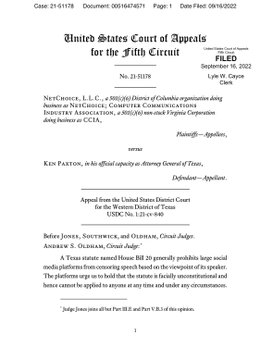by Becker News

Twitter kept secret “blacklists” that included a doctor at Stanford and several prominent conservative voices that suppressed their ability to be found or heard on the social media platform, according to journalist Bari Weiss, founder and editor of The Free Press and former Wall Street Journal and New York Times columnist, who launched the second chapter in Elon Musk’s so-called “Twitter Files” Thursday evening.
Weiss tweeted what appeared to be a photo of Stanford University’s Dr. Jay Bhattacharya, a professor of health policy, with his account being prominently marked as being under a “Trends Blacklist.” Bhattacharya was secretly blacklisted because he “argued that Covid lockdowns would harm children,” and was thus unable to trend on the platform, according to Weiss.
by Patriots Staff

"A private company now gets to decide to take your money if you say something they disagree with. Insanity." -David Marcus, a former president of PayPal
[ToddStarnes.com] PayPal has reinstated a controversial punishment for users who spread what they consider to be inaccurate or misleading information. (Image: Pexels)
Anyone who violates the policy faces a $2,500 fine—per violation.
PayPal "says it can hold ALL the money in your accounts for up to six months 'if reasonably needed to protect against the risk of liability or if you have violated our Acceptable Use Policy,'" Judicial Watch president Tom Fitton said.
PayPal had originally announced the policy a few weeks ago leading to a mass exodus of users.
Their stock plunged six percent in one day—down 55 percent for the year.
In response PayPal reversed course and apologized.
So lots of folks are very confused as to why they have reversed course again.
By: Trevor Schakohl, Daily Caller, on September 17, 2022
The U.S. Fifth Circuit Court of Appeals preserved Texas state law Friday that would stop large social media platforms from restricting particular opinions.
Texas’ HB 20 was signed last year and generally prohibits platforms with over 50 million monthly U.S. users from censoring them based on their viewpoints. The Computer Communications Industry Association (CCIA) and the NetChoice organization, representing social media companies, argued that aspects of the law were unconstitutional but failed to convince the court.
“In urging such sweeping relief, the platforms offer a rather odd inversion of the First Amendment,” the court’s majority decision said. “That Amendment, of course, protects every person’s right to ‘the freedom of speech.’ But the platforms argue that buried somewhere in the person’s enumerated right to free speech lies a corporation’s unenumerated right to muzzle speech.”
The appeals court must give the district court that previously decided the case written instructions for the law to become effective, according to Politico. A 5-4 May U.S. Supreme Court ruling had halted the law from going into force after an emergency request by the CCIA and NetChoice.
Appealing Texas Attorney General Ken Paxton celebrated the circuit court’s decision Friday, tweeting, “#BigTech CANNOT censor the political voices of ANY Texan! The 5th Circuit ‘reject[s] the idea that corporations have a freewheeling First Amendment right to censor what people say.”


CCIA President Matt Schruers decried the ruling, stating, “Forcing private companies to give equal treatment to all viewpoints on their platforms places foreign propaganda and extremism on equal footing with decent Internet users, and places Americans at risk,” according to The Hill.
The Supreme Court could still be asked to directly consider the law’s validity, the outlet reported.
In May, the 11th Circuit Court of Appeals upheld a block on enforcing parts of Florida Senate Bill 7072, which would require social media platforms to explain the reasons for individual acts of supposed censorship, deplatforming and shadow banning and stop them from censoring a “journalistic enterprise based on the content of its publication or broadcast,” according to The National Law Review.“We are disappointed that the Fifth Circuit’s split decision undermines First Amendment protections and creates a circuit split with the unanimous decision of the Eleventh Circuit,” NetChoice Vice President and General Counsel Carl Szabo said in a Friday press release. “We remain convinced that when the U.S. Supreme Court hears one of our cases, it will uphold the First Amendment rights of websites, platforms, and apps.”
Source: https://gellerreport.com/2022/09/federal-court-against-big-tech.html/?lctg=148053577
By Jim Hoft
This is BIG.
A federal judge has permitted Missouri Attorney General Eric Schmitt’s office to conduct an investigation into Big Tech collusion with the Biden Administration.
We previously wrote about the lawsuit filed in May by the states of Missouri and Louisiana against ALL of the MAJOR GOVERNMENT PLAYERS in Big Tech Censorship, including Joe Biden, Jen Psaki, Anthony Fauci, the CDC, the NIH, the Department of Homeland Security, DHS Secretary Alejandro Mayorkas, and many others.
